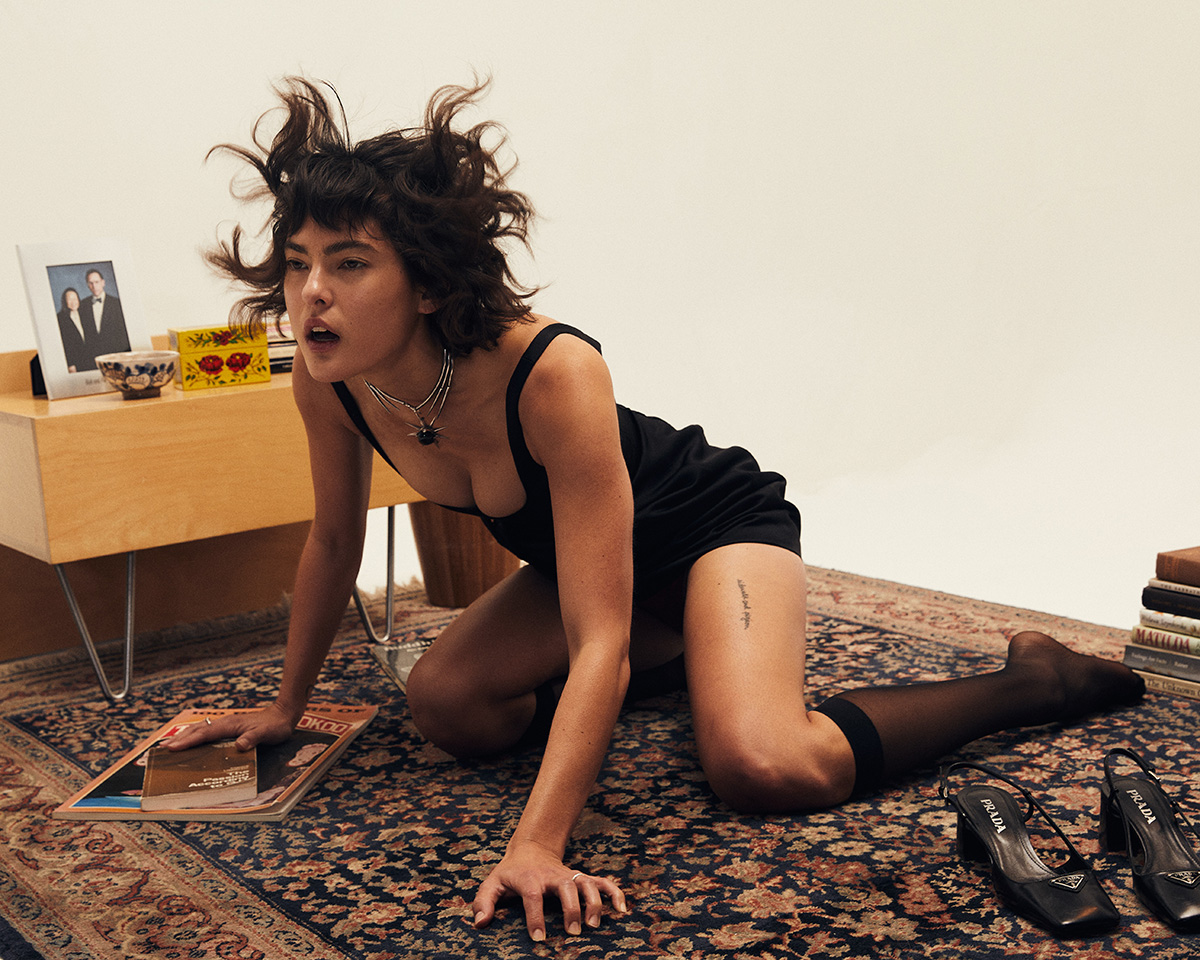MIYA FOLICK
What inspires me the most to write is that there’s this need in me to write,”
vocalist, songwriter, and producer Miya Folick tells SoundExchange.
“I don’t really know how to explain it, and it’s always been there.”
Folick first appeared on the indie rock scene in 2015 with her self-released debut EP, Strange Darling. She followed it up two years later with another EP, Give It To Me, and Premonitions, her 2018 debut full-length set, both on the Terrible label. Those releases won the California native substantial praise (and a coveted NPR Tiny Desk Concert) that saw her fanbase grow exponentially.
After signing with Nettwerk, she carried the momentum of the critically acclaimed 2022 EP 2007, into ROACH. Rooted in an innate pop sensibility, the 2023 album is an eclectic, lyrically raw collection, layered in indie rock urgency and propelled by Folick’s signature powerful vocals.
“I was interested in this radical honesty, this extremely straightforward, conversational honesty,” Miya says of ROACH. “But because I focused on that for that project, then
the part of me that’s actually extremely private, that I keep for myself alone, that part of me kind of crept up and was like, ‘No, listen to me. I need to be heard, too.’”
Folick is currently exploring what she says are “these competing factions inside of me.”
“It’s not that my next record is going to be shrouded in mystery, but I allowed myself to have a little bit more,” she explains. “There are certain metaphors that I don’t explain or unpack. On ROACH it’s extremely obvious what every song is about. I haven’t abandoned that honesty, but the way that I have chosen to approach it, there’s a little bit more room for things to be open to interpretation, allowing certain songs to be more vague.”
A voracious reader (“Like paper, real books. I was kindly gifted a Kindle by somebody, and I tried to bring it on tour once, and it just doesn’t work for me.”), Folick toured extensively behind ROACH with the likes of Dermot Kennedy, Aly & AJ, The Head and the Heart, and Father John Misty. Her show schedule is lighter for 2024 so far, as she has been concentrating on pulling together material for the new, as-yet-untitled album and letting that “need to write” guide her.

“When I’m writing, usually it starts with some sort of guitar riff or a chord progression, and then from there, letting my subconscious show me where it wants to go,” she says of her creative process. “Going the other way around, where my rational mind is coming up with an idea and then telling my subconscious to figure out the rest doesn’t really work for me.”
As a female Asian-American creator, Folick finds that she is often acutely aware of her gender and heritage because of the lack of diversity around her.
Representation is so important and the industry is not doing a good job,”
Miya says.
“What’s interesting is that the industry has gotten a little bit better in terms of diversity amongst artists. But at the same time, I can’t ignore the fact that I’m so often the only person in the room who is not white. And not just not white, but not a cis-white man.”
“There is definitely more diversity amongst artists,” she explains. “But then look behind the scenes at managers, record executives, players. It is extremely homogenous and it still, in certain ways, feels like a boys’ club.”
Nonetheless, the 34-year-old is optimistic about future diversification of the industry.
“It also is generational though, because in the music community, just a generation under me, I feel like I see more diversity,” she says. “You know, Mitski being such a huge artist right now or Japanese Breakfast being a hugely successful musician and also writing a book about her culture. I’m just excited to see what happens in the next 10 or 15 years as Gen Z continues to age into more positions of power within labels because I feel like things got to change.”
